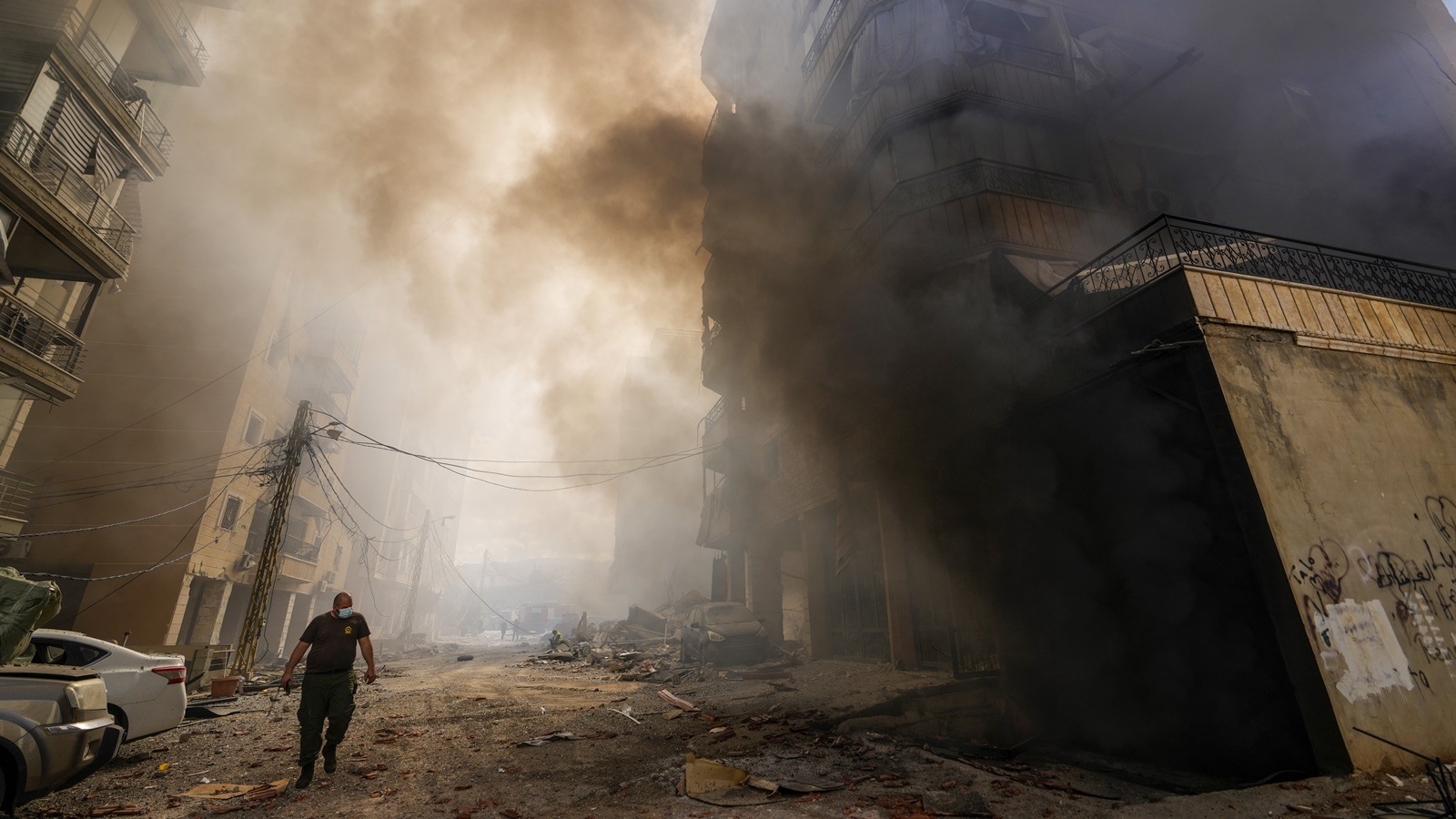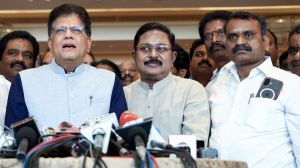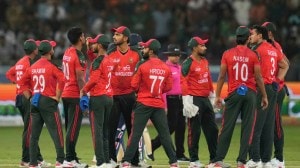Stay updated with the latest - Click here to follow us on Instagram
At UNSC security meet: ‘Israel will defend itself’, ‘Iran won’t hesitate to protect territorial integrity’
The UNSC convened following Israel’s killing of Hezbollah leader Hassan Nasrallah and its ground offensive against the Iran-backed group, as well as an Iranian missile attack on Israel, which heightened fears of a broader regional war.
 Smoke rises from the site of an Israeli airstrike in Dahiyeh, Beirut, Lebanon, Wednesday, Oct. 2, 2024. (AP Photo)
Smoke rises from the site of an Israeli airstrike in Dahiyeh, Beirut, Lebanon, Wednesday, Oct. 2, 2024. (AP Photo)The United Nations Security Council met Wednesday amid escalating tensions in the Middle East, with Tehran launching a barrage of missiles into Tel Aviv on Tuesday.
Speaking at the conference, the Israel’s ambassador said, “Israel will defend itself; we will act. The consequences Iran will face for their actions will be far greater than they could have ever imagined.”
Calling Iran’s missile barrage “calculated attack on civilians”, Israel said it “must pay a heavy price for its attack.”
Iran on its part maintained that it only targeted Israeli military and security facilities in line with international humanitarian law. “The missile strikes were a necessary and proportionate response as Israel has continued its aggressive acts over the part two months. The regime is pushing the region to the edge of an all out unprecedented catastrophe,” Iran’s ambassador said.
“Israel has no intention of pursuing peace or a ceasefire. Iran’s fully prepared to further defensive measures if necessary to protect its territorial integrity and sovereignty against any act of aggression, and illegal use of force. In this regard, Iran will have no hesitation,” he added.
The United States issued a stern warning to Iran, urging it to not target the US or Israel.
US Ambassador to the UN Linda Thomas-Greenfield defended US and Israeli actions as defensive, stating: “Let me be clear: The Iranian regime will be held accountable for its actions. We strongly warn against Iran—or its proxies—taking further action against the United States or Israel.”
Meanwhile, UN Secretary-General António Guterres called for an end to the ongoing “deadly cycle of tit-for-tat violence” in the Middle East. “Time is running out,” Guterres warned the council.
The 15-member council convened following Israel’s killing of Hezbollah leader Hassan Nasrallah in Lebanon and its ground offensive against the Iran-backed group, as well as an Iranian missile attack on Israel, which heightened fears of a broader regional war.
French Ambassador Nicolas de Riviere urged the Security Council to present a united front in de-escalating the conflict. Thomas-Greenfield called for the council to condemn Iran’s actions and impose “serious consequences” on Iran’s Revolutionary Guards Corps for supporting terrorism and violating council resolutions.
In his address, Guterres condemned Iran’s strike on Israel, although earlier in the day, Israel’s foreign minister had barred him from entering the country for not doing so sooner. In a letter to the Security Council, Iran justified its actions as self-defence under Article 51 of the UN Charter, citing Israeli provocations and sovereignty violations.
Iran. However, Israel’s UN Ambassador Danny Danon rejected this, calling it a “calculated attack on civilians.” He vowed Israel’s response would be decisive, lawful, and painful.
- 01
- 02
- 03
- 04
- 05






























